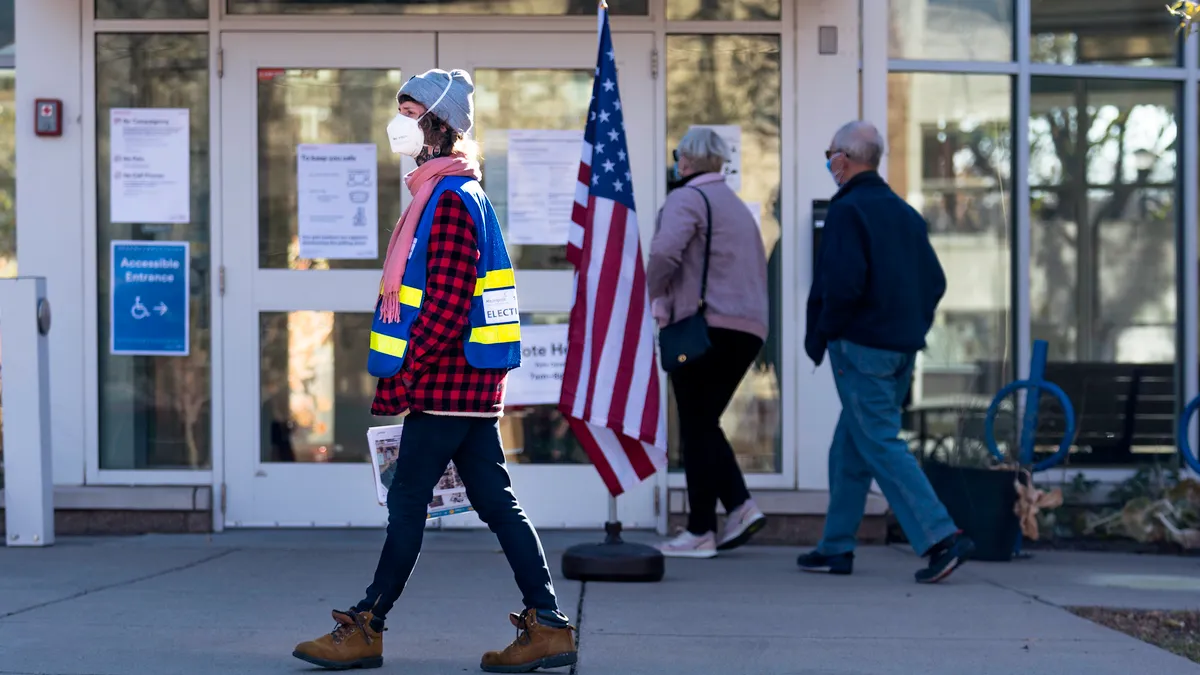Dive Brief:
- Voters in four states approved ballot measures to legalize recreational marijuana use, while those in two states voted to establish medical marijuana programs, in an election that could bring sweeping changes to HR compliance at the state level.
- Meanwhile, Colorado voters approved a measure to implement a paid family and medical leave program in the state — funded in part by payroll taxes — that would provide up to 12 weeks of leave with an additional four weeks for pregnancy or childbirth complications. Florida voters passed an initiative to raise the state's minimum wage to $15 incrementally by 2026.
- In California, voters approved a measure backed by gig economy companies including Uber, Lyft and Doordash that would classify workers using their platforms as independent contractors despite a law passed last year by state lawmakers that arguably classified many as employees. Voters rejected an additional measure that may have allowed for state and public institutions in California to establish affirmative action programs.
Dive Insight:
Employers in a number of states may need to shift compliance operations to account for the coming wave of recreational marijuana legalization in Arizona, Montana, New Jersey and South Dakota. A 2019 Paychex survey found that 38% of employers were unprepared to manage employee recreational use of cannabis, while 34% said the same of medicinal use. Employment law sources have previously emphasized the need to understand testing protocols as well as how pre-existing policies are impacted by new legislation. Some of the ballot questions specified that employers would not be prohibited from taking adverse actions based on employee marijuana use, but others did not.
| Initiative | Passed (Y/N) |
|---|---|
| Arizona Proposition 207: Recreational marijuana legalization | Y |
| California Proposition 22: Designating the state's app-based drivers independent contractors | Y |
| California Proposition 16: Affirmative action programs at state and public institutions | N |
| Colorado Proposition 118: Creating a paid family and medical leave program | Y |
| Florida Amendment 2: Raising the state's minimum wage incrementally to $15 an hour | Y |
| Mississippi Initiative 65/65A: Medical marijuana program | Y, 65 Wins |
| Montana Initiative I-190: Recreational marijuana legalization | Y |
| New Jersey Public Question 1: Recreational marijuana legalization | Y |
| South Dakota Constitutional Amendment A: Recreational marijuana legalization | Y |
| South Dakota Initiated Measure 26: Medical marijuana program | Y |
Other initiatives could shake up entire industries. Passage of California's Prop 22, in particular, "is a huge win for digital platforms because they now have strong footing for a third 'flavor' of worker in California – employees, independent contractors, and now gig workers," Katherine Catlos, partner at Kaufman Dolowich & Voluck, said in an email statement. "Companies in California who hire app-based workers will continue to see substantial litigation on the issue in the near future and beyond."
In Colorado, passage of a paid family and medical leave initiative comes at a time of continued pressures due to school closures, delayed reopenings and the health risks associated with COVID-19. Federal paid leave protections provided by the Families First Coronavirus Response Act are due to sunset Dec. 31, and federal lawmakers have so far been unable to agree on how a national paid-leave program might be established.
Additionally, Florida now joins seven other states in voting to increase its minimum wage to $15 an hour at some future point. The results of the presidential election are still to be determined as of Nov. 4, but Democratic nominee Joe Biden recently pledged to back a $15 minimum wage.














